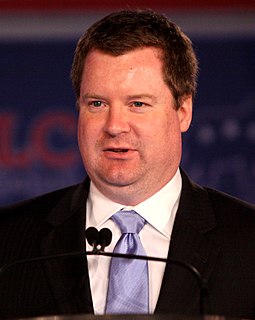A Quote by John Barrasso
In an agreement with China, President Obama has already pledged to reduce America's net greenhouse-gas emissions by more than 25% by 2025. In return, China has agreed to 'peak' its carbon-dioxide emissions in 2030.
Related Quotes
I am troubled by the lack of common sense regarding carbon dioxide emissions. Our greatest greenhouse gas is water. Atmospheric spectroscopy reveals why water has a 95 percent and CO2 a 3.6 percent contribution to the 'greenhouse effect.' Carbon dioxide emissions worldwide each year total 3.2 billion tons. That equals about 0.0168 percent of the atmosphere's CO2 concentration of about 19 trillion tons. This results in a 0.00064 percent increase in the absorption of the sun's radiation. This is an insignificantly small number.


































